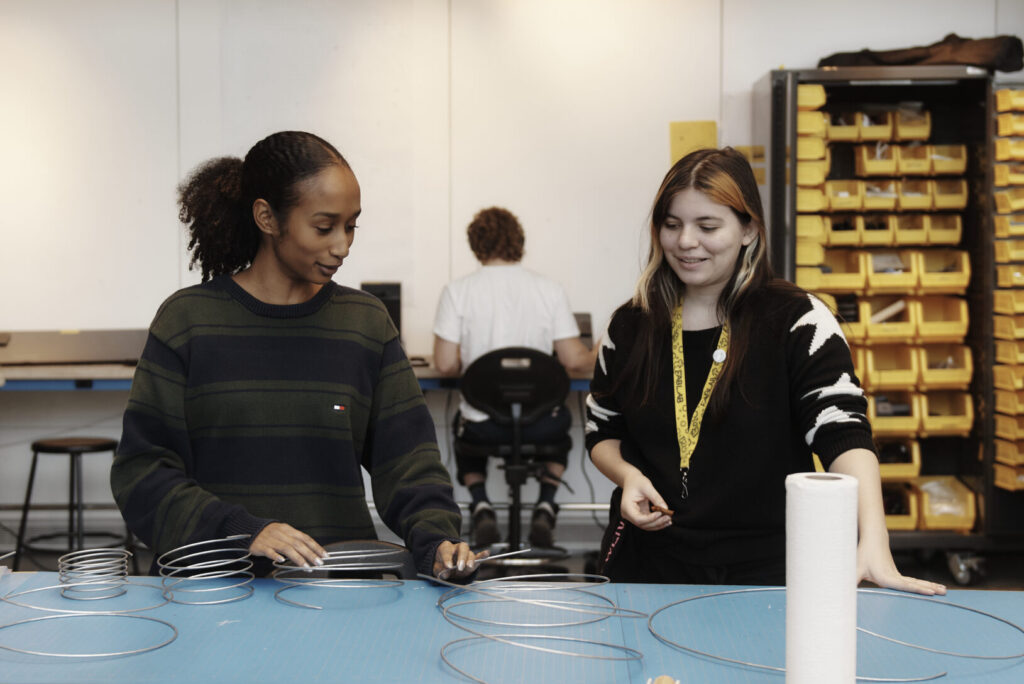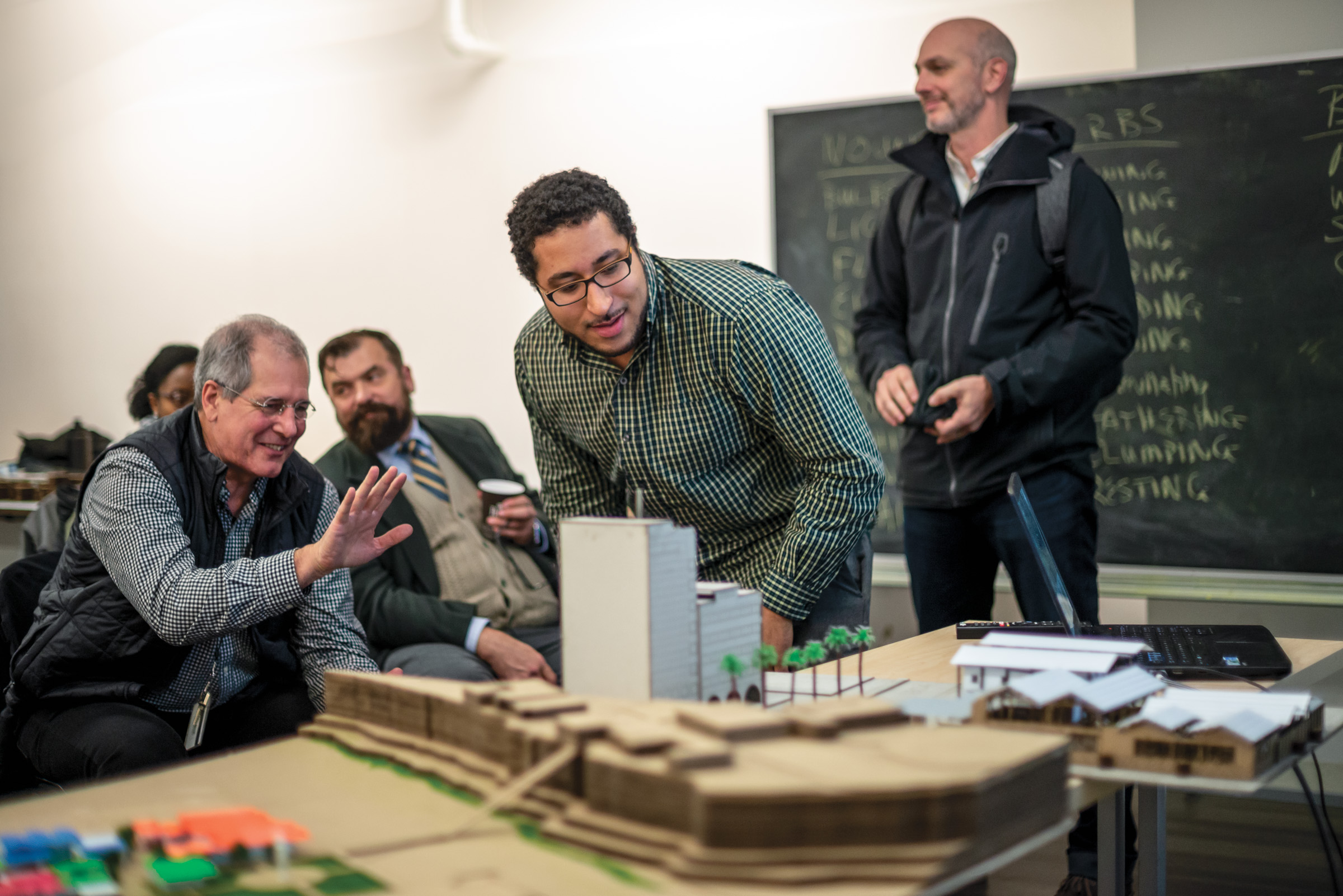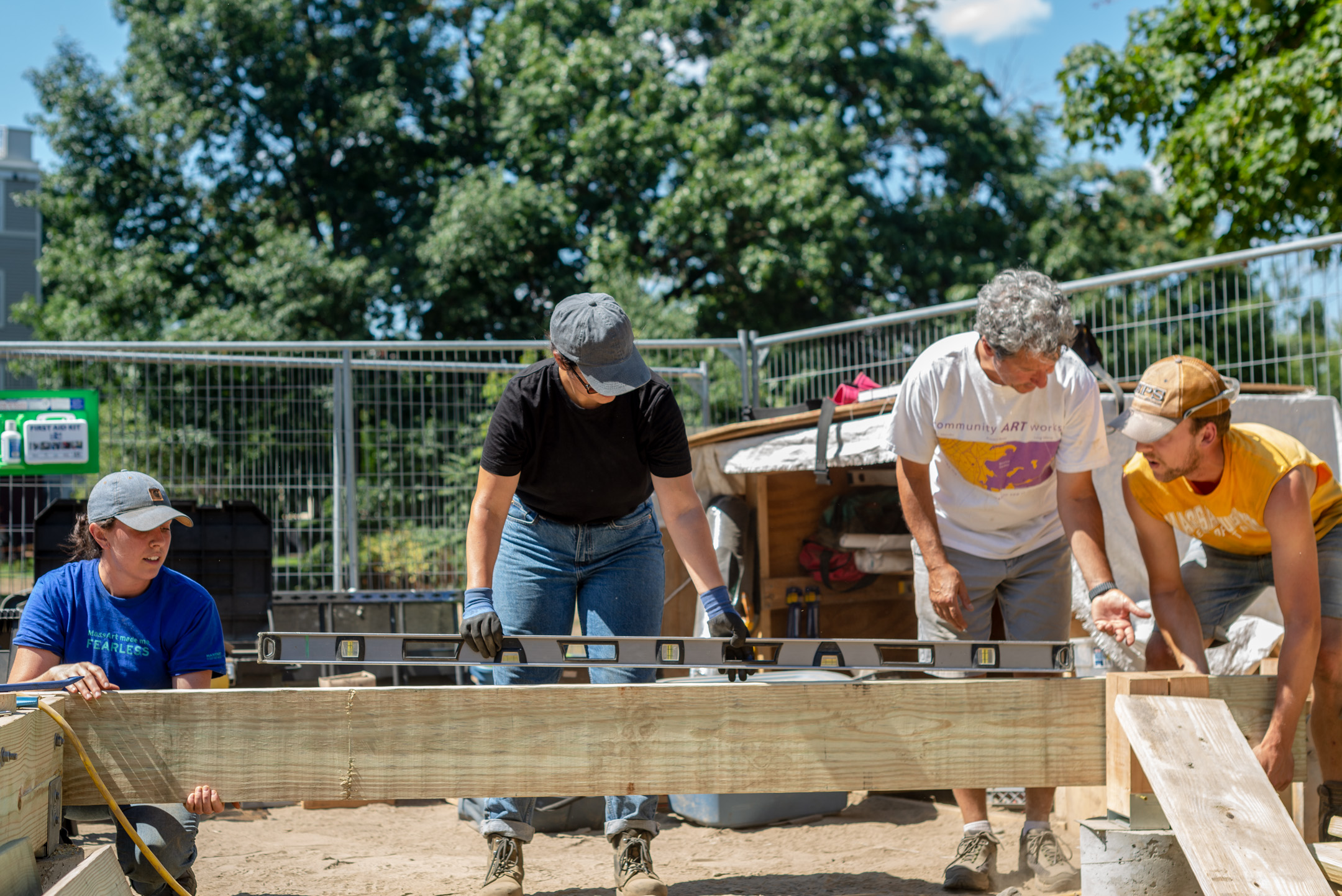A M.Arch degree can be pursued at MassArt in two ways:
Track I
Students with an undergraduate degree outside the field of architecture can complete a 2.5 year program. This track includes pre-professional coursework (42 credits) followed by the Track II professional coursework (60 credits, below), and is completed in seven semesters, including two summers.
Track II
Students who have already earned an undergraduate degree in Architecture can complete a 1.5 year program of professional coursework (60 credits). This program is completed in four semesters, including one summer.
Track I & Track II Course Sequence →

















